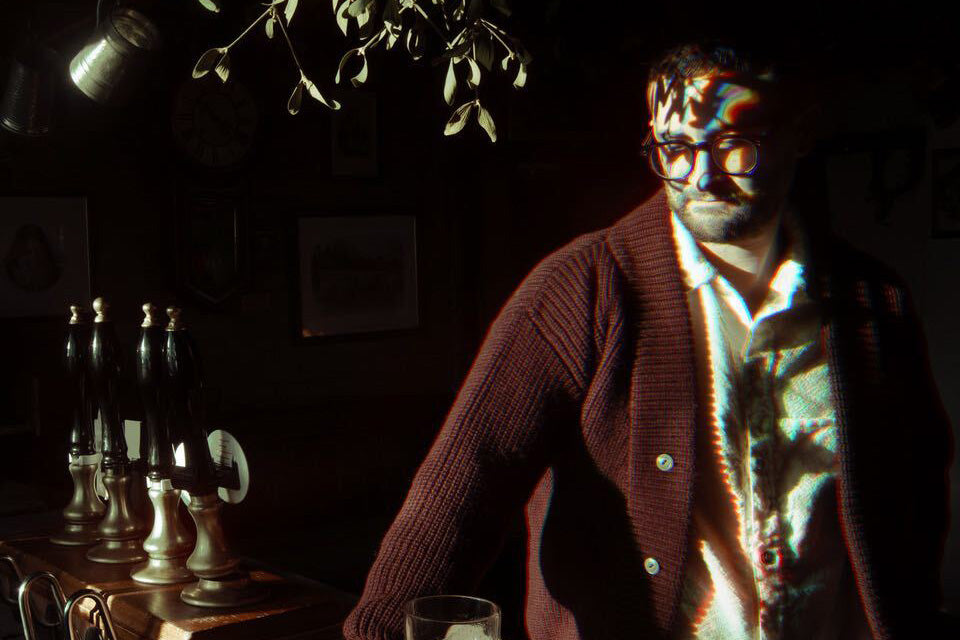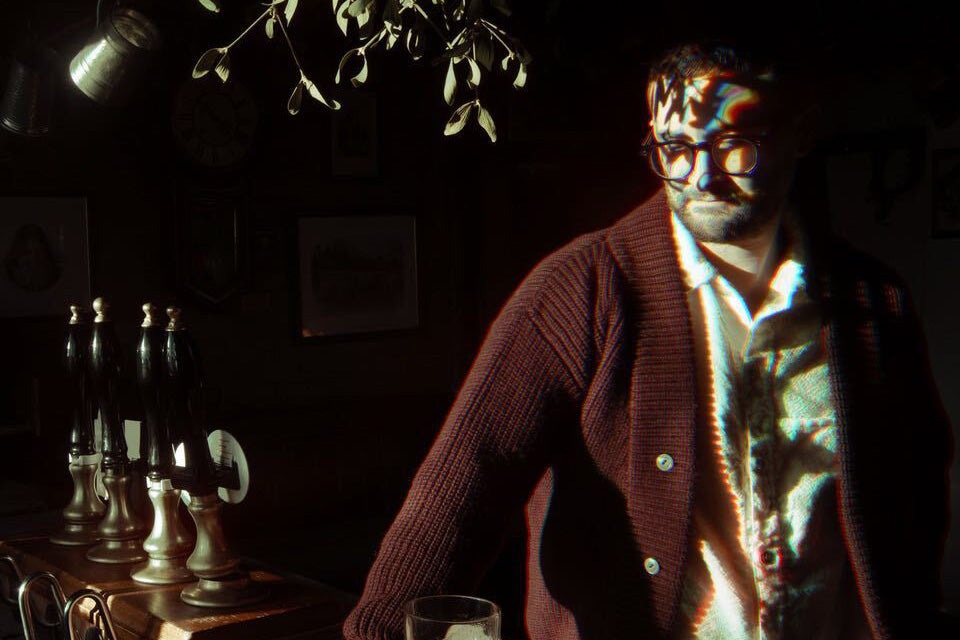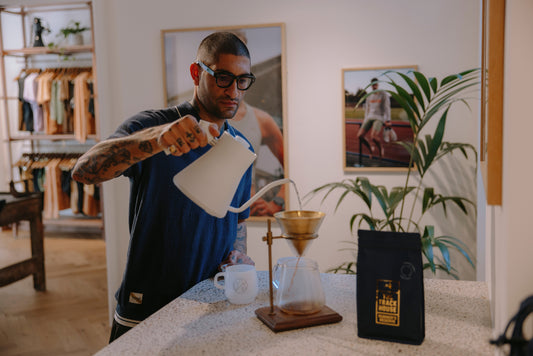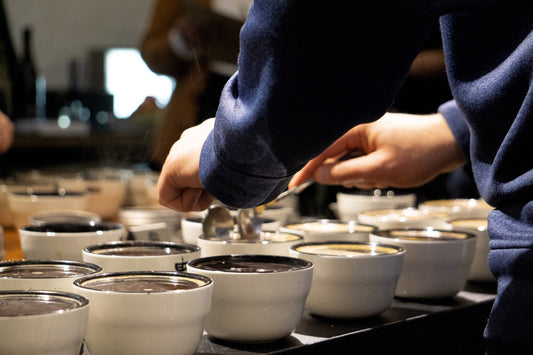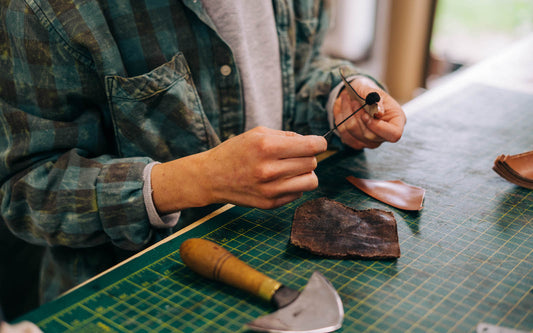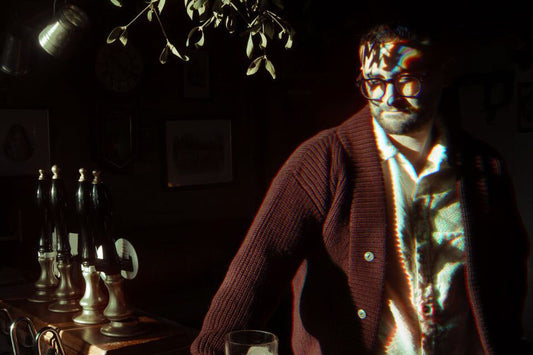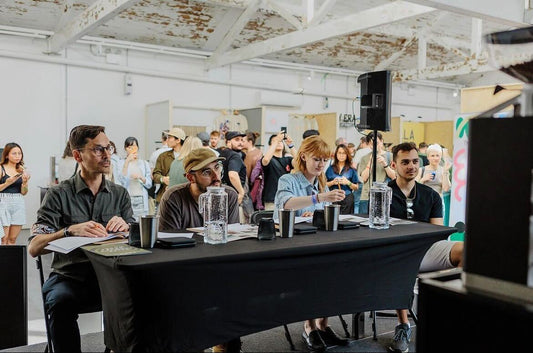 Photo credit: Rory Cole / Tender
Photo credit: Rory Cole / Tender
“This has become a project predominantly driven by a combination of curiosity and passion”, says Kroll during our latest catch-up over the phone.
For the last 3 months, the founder of British apparel brand Tender has been trialling the use of coffee as a natural dye in a bid to create a pair of knitted and hand linked wool socks. Up until now, the results have been promising, but not quite robust enough to scale up to the small initial run we’re pushing for.
However, he’s made a breakthrough. The brewed coffee is sticking and we have a recipe to work to.
We’ve been admirers of British designer Will for several years. Having graduated with a degree in menswear from Central Saint Martins, he founded Tender in his home town of Stroud, Gloucestershire. Inspired by antique workwear, and the Great British Steam Age in particular, Kroll talks of his products as being rooted in the possible. He welcomes and even encourages evidence of the manufacturing processes in the final product and sees it as a way of paying homage to those responsible for making them in the first place. It’s closely linked to, and somewhat inspired by, the Japanese ethos of wabi-sabi, and the idea of embracing imperfection:
"As I understand it, wabi-sabi is the idea that objects get more special as they are used or as they age, with the peak of their beauty being the same moment that they fall apart", explains Kroll. I like to think of the products that I sell as being at a half-way point: their story begins with the makers of the materials, through the manufacturers of the products under my design, but I then pass them on to their new owners who will take them into their lives. At this point a set of a particular product that was produced together will diverge and may end up very differently, through being worn, cared for, or altered, differently, often in very different parts of the world. I’ve always loved dead-stock clothing, and I also really enjoy how unworn Tender products that I’ve had in stock for several years gain a sort of gravitas over time, and to my mind become more special, rather than something to be discarded or picked up cheap in a sale".
 Photo credit: Rory Cole / Tender
Photo credit: Rory Cole / Tender
Tender’s approach and product philosophy is beautifully embodied in the name of the business itself. This concept of creating something honest and tactile is captured eloquently yet succinctly in those two syllables.
Today, Will’s products are found in quality-focused apparel stores across the world, from the UK and through Europe, right on to the US, Australia and Japan. You can view a full list of his enviable list of stockists here. Alongside Tender, Will has also founded a workwear brand called SLEEPER.
"There’s a strict design framework that I’ve built up around Tender, and I’m pretty clear in my own head as to what is or isn’t a Tender product. Over the years I’ve had various opportunities to work on side projects which don’t quite fit into Tender, and I love the idea of creating a new brand around perhaps just a few products. Sleeper, Whooper, Then, GS/TP, PopPunch, aT, Somersoll, Achilles’ Heel, Savnac, are all side projects which I’ve developed little brands for – as an intellectual pursuit as much as anything! I think to an outsider they all share a common visual language, but to me they’re each a bit different".
With a clear dedication to provenance and understanding of his role in refining and working with the raw products he selects, we were excited at the prospect of working together with William and Tender. Whilst working with incredible producers and manufacturers, it’s Will’s process of refinement and that transforms and elevates them into the beautiful, covetable and — in a literal sense — unique products he creates. Consistent in quality and performance, one of the great joys of Tender products is the fact that the making process they undergo means that every single product will be unique, with its own characteristic quirks.
"Working in small quantities with often quite experimental processes means that, by their nature, things usually come out slightly unpredictably, and individually". This, William says, was especially true of the coffee he's been using to dye our collaborative socks. "I’d never done it before and it took quite a bit of experimentation to get right. Because we were using fine ground espresso coffee, a certain amount of undissolved suspended grounds, or sediment in dyer’s terms, got caught up in the dye process, which caused slight variations and darker streaks within the socks". However, it's these unique inconsistencies that, to Will, make the products. "The smell of the coffee bound up in the fabric; the stories behind the whole process – these, to me, make these socks, and other Tender products, much more than an equivalent ‘perfect’ standard-production garment of the same colour".

The rib woollen socks are knitted from woollen yarn that's spun England. Kroll is keen to point out that 'woollen' yarn is different to 'wool' yarn:
"Woollen yarn is spun from shorter sections of wool fibre, either from shorter clippings, or from fibre that’s selected out from worsted spinning. Worsted spun yarn is usually reserved for finer applications like formal suiting or high-gauge knitwear, whereas woollen yarn is traditionally used for tweeds, blankets, and heavy knitwear. Because the fibres are shorter they don’t lie as smoothly as in a worsted, rather they fluff out giving a thicker, softer, texture".
Initially taking the form of a long, continuous tube of many socks, the individual pairs are then cut apart into create individual socks. These are then hand linked, which involves taking the cut, still-open socks and then knitting the two sides of one end together to create a flat, seamless join at the toe. Thanks to additional attention to detail in their design, each pair of the resulting socks are incredibly hardwearing. The specifications of this, Will tells us, are based on military specifications. "They're made with a loop-back, or terry, double knit sole, which makes them especially comfortable, and appropriate to wear with lighter shoes or even heavy walking boots."

Our collaborative socks have then been taken to one of Tender’s dyers. This part of the process is of particular interest to Will:
“I’ve been interested in dyeing since before starting Tender”, he says, “but have become fascinated the more I’ve learned. There are a number of ways of achieving the end result — fibre dyeing, yarn dyeing, piece dyeing — but the furthest downstream you can go is garment dyeing. This is the one that I’ve always been most interested in as it involves taking every part of a garment, from its fabrics to its threads, labels, buttons, everything, and creating one coherent piece. For me, it creates something of integrity and that I know will develop as it’s worn over time”.
This is the approach that’s been taken with these socks. Submerged in a dye vat with several kilos of finely ground coffee, the natural dyeing process has created a beautiful caramel colour, reminiscent of espresso and milk drinks.

“My favourite part of this process and working with natural dyes like this”, extols William excitedly, “are the irregularities that show up in dyeing. It offers terrific potential to show use and age as they wear in”.
The beginning of what we hope will be a long-term initiative between Tender and Workshop, we’ve used a combination of coffee that would have otherwise gone to waste taken from our quality control procedures, quakers and rogue beans hand picked from our roasted batches. A collaboration that’s been created to wear in, not out, we hope you enjoy the results.

Our initial, limited run of Tender x Workshop Coffee socks are available to purchase here. You can learn more about Tender, and shop William’s wider range of products that he’s both created and curated, on his website: https://www.tenderstores.com/
Share:


